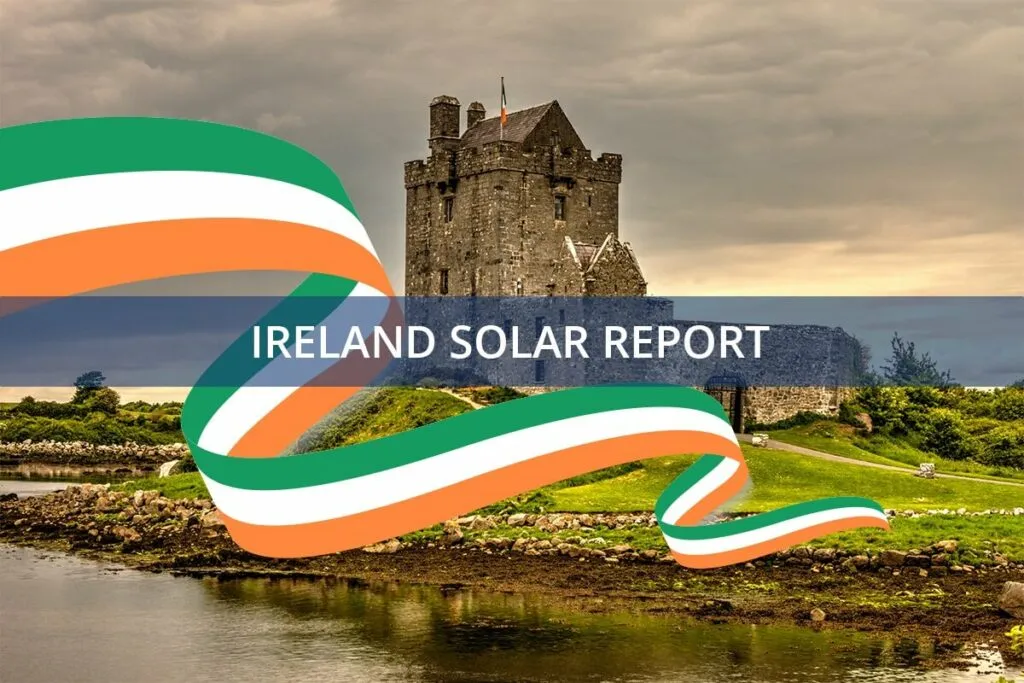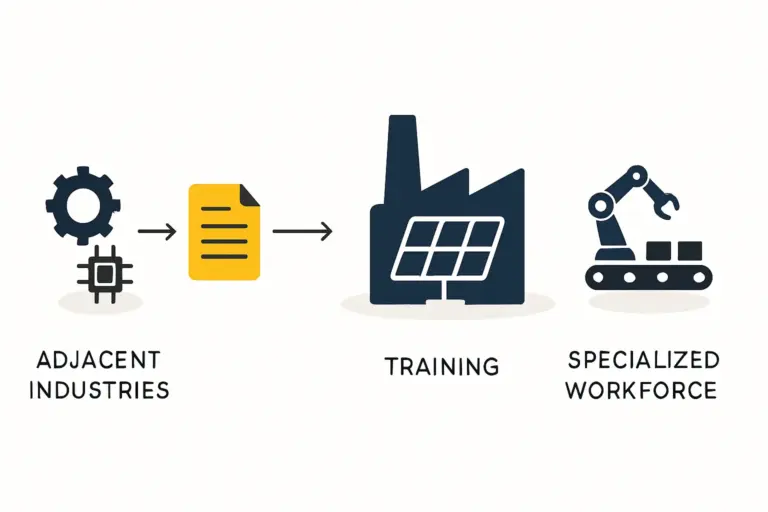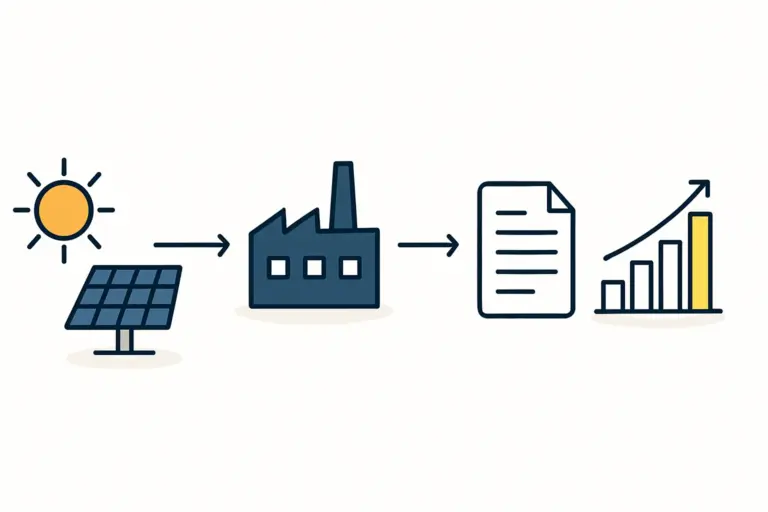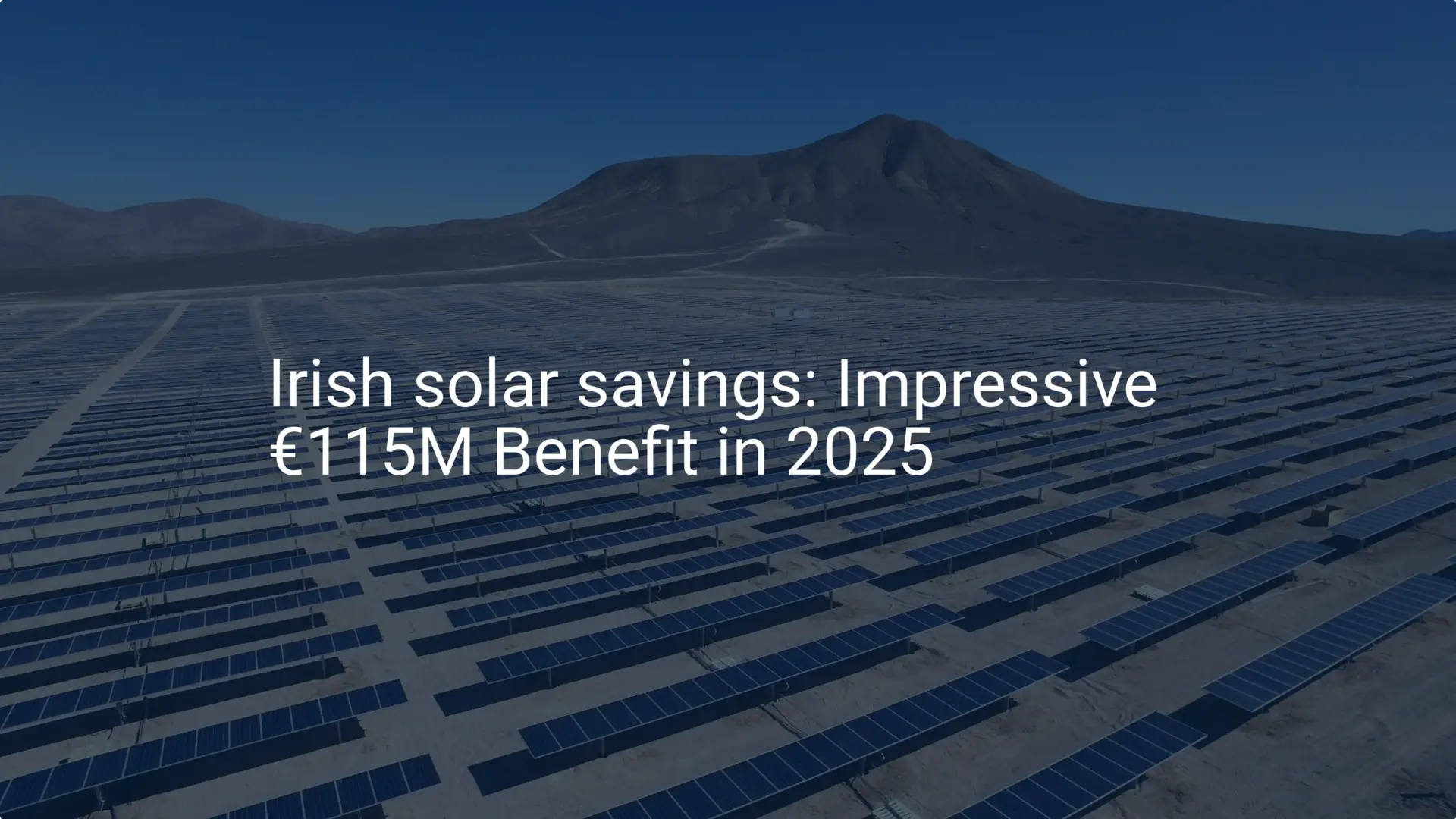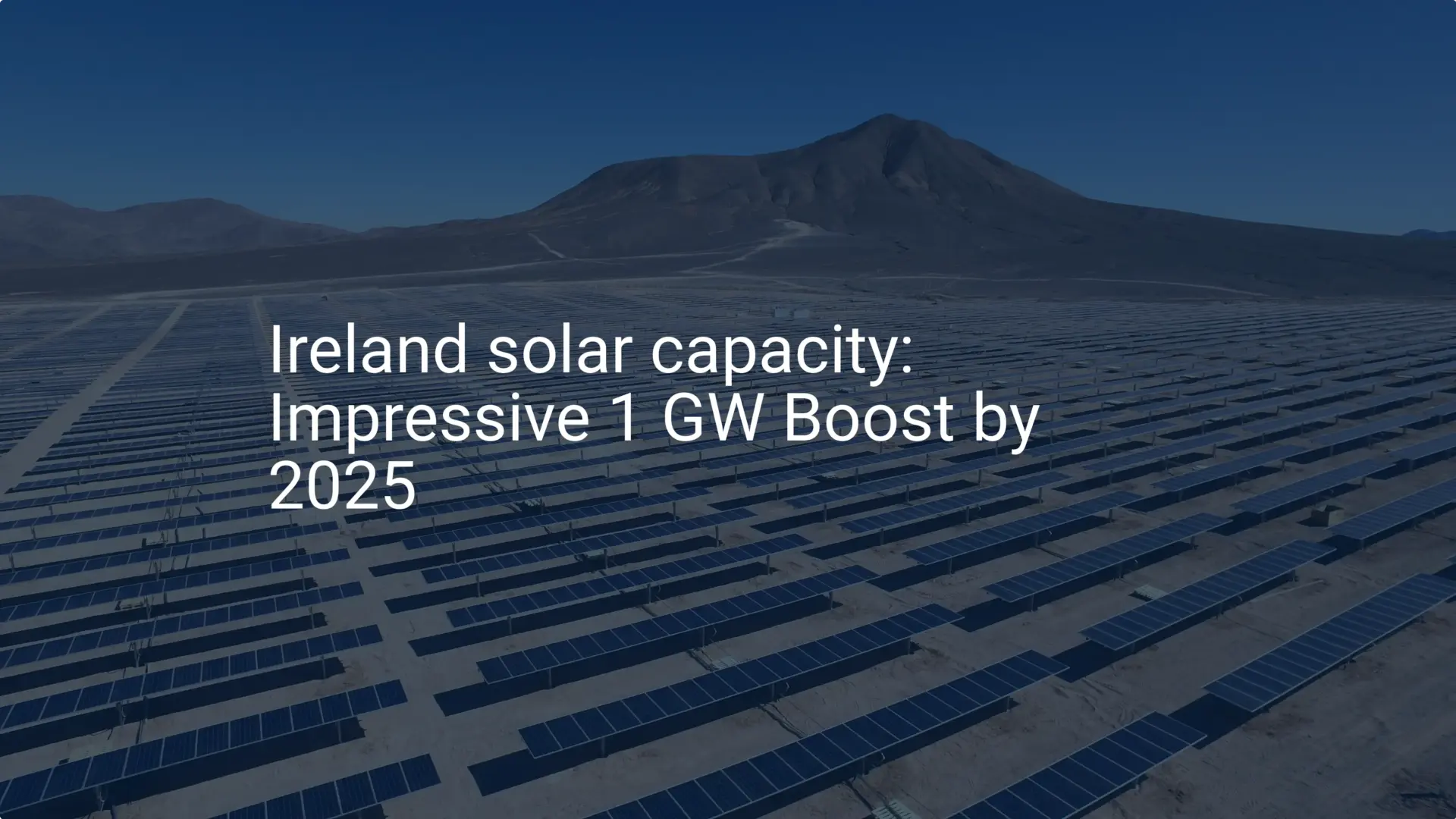Many entrepreneurs in solar module manufacturing see government incentives as a potential bonus—a helpful addition to an already viable business case. In strategic locations like Ireland, however, support from a Foreign Direct Investment (FDI) agency can be foundational, transforming a project’s entire financial structure. Understanding this process isn’t just beneficial; it’s often the critical factor in a project’s feasibility and long-term success.
This guide offers a procedural overview of applying for grant support from IDA Ireland, the state agency responsible for attracting foreign investment. Tailored for professionals planning to establish a solar module production facility, it outlines the key criteria, stages, and strategic considerations for a successful application.
Understanding IDA Ireland’s Role in Foreign Direct Investment
IDA Ireland is the central body tasked with attracting and developing foreign-owned businesses in Ireland. Its mission is to partner with overseas companies to help them establish and expand their operations, with a strategic focus on high-value, knowledge-intensive sectors such as technology, life sciences, and advanced manufacturing.
A modern solar module factory aligns perfectly with this mandate, representing a significant investment in the green economy, creating skilled employment, and contributing to Ireland’s sustainability targets. Well-structured solar manufacturing proposals are therefore met with considerable interest. IDA Ireland’s role extends beyond funding; it acts as a strategic partner, offering guidance and support throughout the setup process.
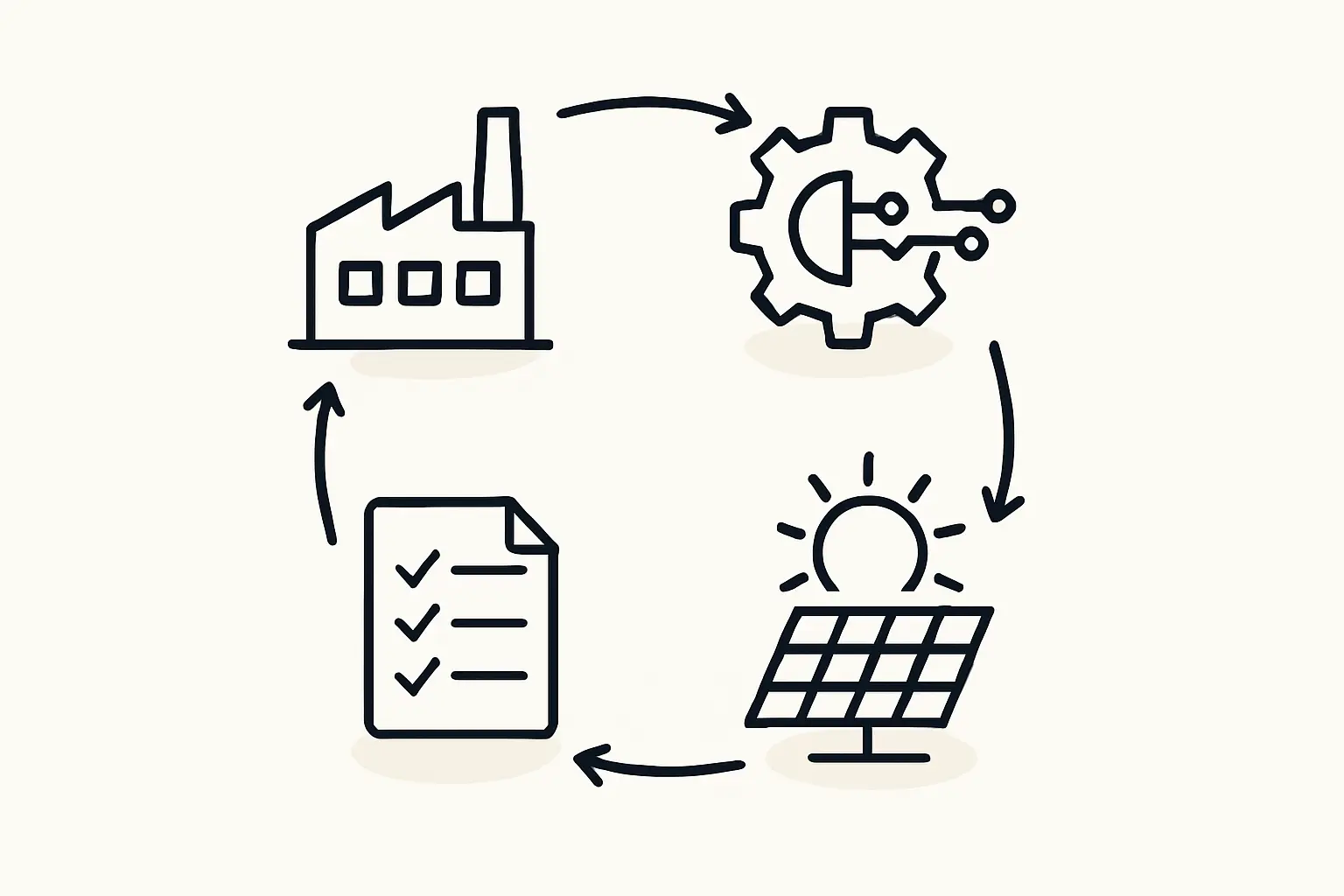
Core Eligibility Criteria for Solar Manufacturing Projects
While each project is assessed on its own merits, several core criteria must be met for a proposal to be considered for IDA support. An enterprise planning a new solar factory must demonstrate:
-
Overseas Origin: The company must be an established overseas entity seeking to invest in Ireland, as the support is designed for foreign direct investment, not domestic start-ups.
-
New or Expanded Operations: The project must involve establishing a new venture in Ireland or a significant, strategic expansion of an existing foreign-owned company.
-
Sustainable Employment: A primary IDA objective is job creation. The business plan must outline a clear strategy for hiring and developing a local workforce, emphasizing high-quality, long-term roles over temporary or low-skill positions.
-
Long-Term Viability: The proposal must prove the business is commercially sound and has the potential for sustained growth, backed by comprehensive market analysis and credible financial projections.
The Step-by-Step Grant Application Process
Engaging with IDA Ireland is a formal, structured process. It’s less about filling out a form and more about a comprehensive business review designed to ensure public funds are invested in viable, strategically important enterprises.
-
Initial Engagement and Scoping: The process begins with establishing contact with the appropriate IDA Ireland office, either in your home country or in Ireland. This initial conversation serves as a high-level introduction to your project, its scale, and its strategic intent.
-
Submission of a Detailed Business Proposal: This is the most critical stage. The applicant must submit a robust business plan that details every aspect of the proposed venture.
-
Rigorous Due Diligence: IDA Ireland conducts a thorough assessment of the business plan, scrutinizing market assumptions, validating financial projections, evaluating the proposed technology, and assessing the management team’s credibility.
-
Negotiation and Board Approval: If the project passes due diligence, negotiations begin. The level of support isn’t a fixed percentage but is negotiated based on the project’s strategic value, job creation potential, and location within Ireland. The final proposal then goes to the IDA Board for approval.
-
Formal Letter of Offer: Once approved, IDA issues a formal Letter of Offer. This legal document outlines the specific grant terms, including the amount, conditions, and the milestones required for payment.
-
Milestone-Based Grant Drawdown: Grant payments are disbursed in arrears. Funds are released incrementally once the company provides proof of meeting pre-agreed milestones, such as completing a certain amount of capital expenditure or hiring a specific number of employees.
Key Components of a Winning Business Proposal
A successful application hinges on the quality and comprehensiveness of the business proposal. Experience with numerous industrial setups shows that the following sections demand meticulous attention.
Market and Commercial Viability
The proposal must demonstrate a clear demand for the solar modules to be produced. This includes an analysis of target markets (e.g., EU, UK), the competitive landscape, and a credible sales and marketing strategy.
Technical and Operational Plan
This section should detail the manufacturing process itself, specifying the technology, factory layout, and key equipment. Defining the technical specifications for a complete turnkey production line is a critical element, and specialized engineering guidance is often essential to prove operational competence.
Financial Strength and Projections
Comprehensive financial models are required, including profit and loss statements, cash flow projections, and balance sheets for at least five years. These must be based on well-supported assumptions regarding production costs, sales prices, and operational expenses.
Management Team and Expertise
IDA Ireland invests in people as much as in projects. The proposal must showcase a strong management team with a proven track record of success in manufacturing, finance, and international business.
Employment and Economic Impact
A detailed employment plan is necessary, outlining the number and types of jobs to be created over time. It is also valuable to show how the factory will integrate into the local economy by engaging local suppliers and service providers.
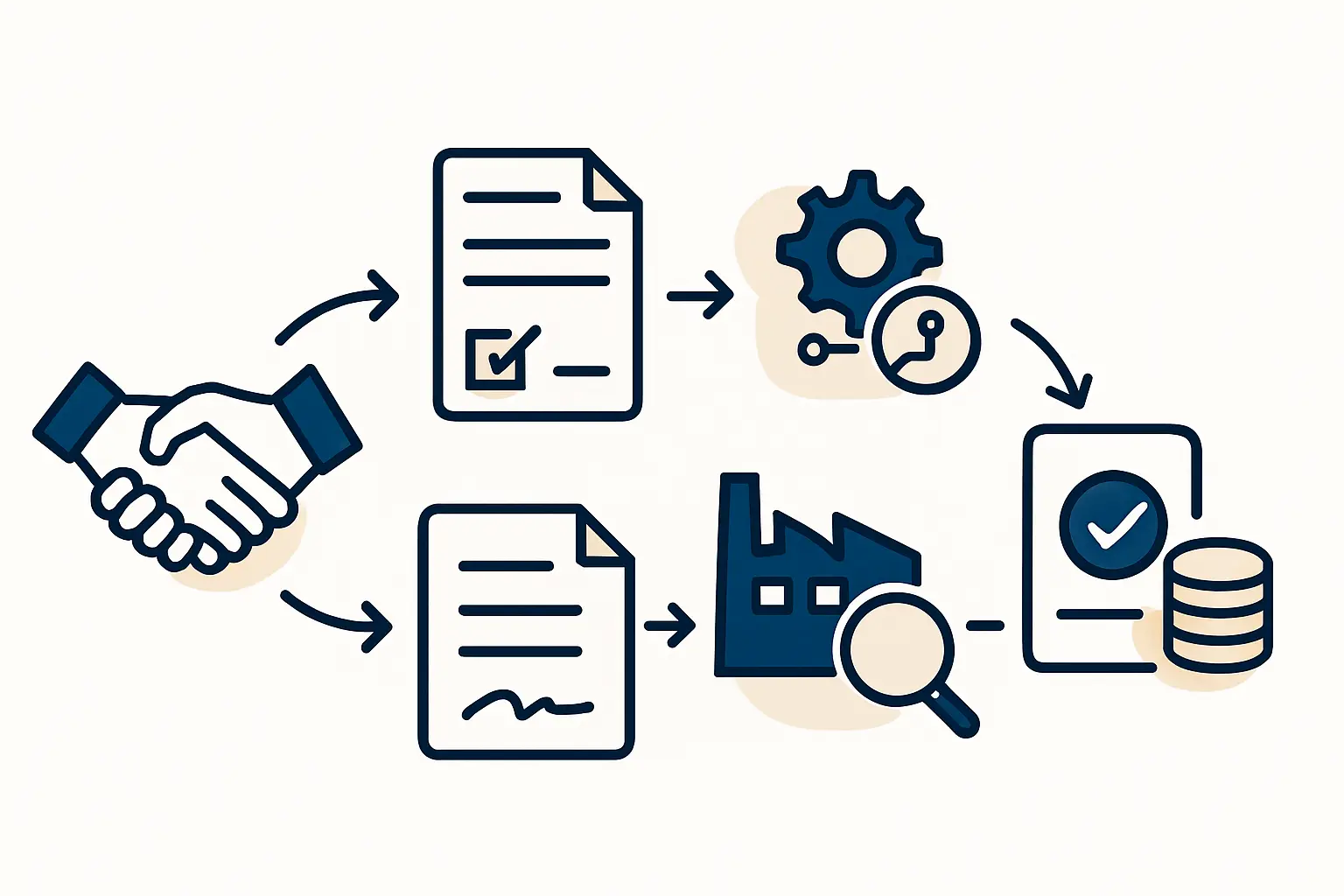
Common Pitfalls and How to Avoid Them
The IDA application process can be complex. Understanding the common pitfalls can help applicants prepare more effectively.
-
Underestimating Detail: The single most common failure is submitting an incomplete or superficial business plan. Every claim must be substantiated with data.
-
Unrealistic Projections: Overly optimistic sales forecasts or underestimated operational costs can quickly undermine credibility. Projections must be conservative and grounded in verifiable market research.
-
Neglecting Local Context: A proposal that fails to show an understanding of the Irish business environment, labor laws, and supply chain realities is unlikely to succeed.
-
Delayed Engagement: Waiting too long to contact IDA Ireland is a missed opportunity. Early engagement allows for preliminary feedback and helps align the project with IDA’s strategic priorities from the outset.
Frequently Asked Questions (FAQ)
What percentage of the project cost can an IDA grant cover?
There is no fixed percentage. The amount of support is negotiated on a case-by-case basis and depends on the project’s strategic value, the quality of jobs created, the location, and the level of innovation.
How long does the application process typically take?
The timeline can vary significantly, but applicants should plan for a process of 6 to 12 months from initial contact to receiving a Letter of Offer. The duration depends on the project’s complexity and the quality of the business plan submitted.
Are grants paid upfront?
No, grant payments are made retrospectively. The company must first incur the cost (e.g., purchase machinery, pay salaries) and then submit a claim to IDA Ireland for reimbursement after proving that agreed-upon milestones have been achieved.
Does IDA Ireland offer support beyond financial grants?
Yes. IDA provides extensive non-financial support, including help with site selection, connecting companies with local talent pools and service providers, and offering guidance on navigating the Irish regulatory environment.

Securing grant support from an agency like IDA Ireland is a rigorous undertaking that demands professional preparation. In this competitive process, only the most well-planned and strategically aligned projects succeed. For entrepreneurs committed to establishing a high-value solar manufacturing facility in Europe, this support offers an unparalleled opportunity to build a strong foundation for long-term growth.
The cornerstone of any successful application is a meticulously researched and professionally developed business plan. For those preparing for this significant undertaking, we offer further resources on developing the core components of a winning business plan.

